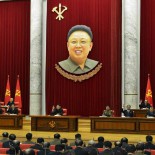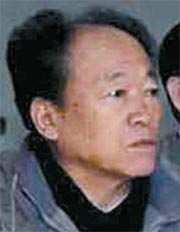New Study on Office #39
The US Army War College’s Strategic Studies Institute’s Letort Papers series (SSI and the Letort series produce fascinating and excellent scholarship) has published a comprehensive study on the activities of Office #39. In Criminal Sovereignty: Understanding North Korea’s Illicit Activities, Professors Paul Rexton Kan (USAWC) and Bruce Bechtol (MCCSC), and retired DOD analyst Robert Collins detail the background and structure of the country’s Third Floor operations, and the kleptocracy in general. It ends with a list of policy recommendations. The summary:
North Korea’s criminal conduct—smuggling, trafficking, and counterfeiting—is well known, but the organization directing it is understudied or overlooked. Policymakers, military leaders, and scholars may feel that they have a reasonable grasp on how and why North Korea is actively involved in criminal enterprises. However, unlike the other remaining communist states “orphaned” after the Cold War, or ordinary corrupt autocratic regimes, or criminally linked warlords and insurgent groups, North Korea practices a form of “criminal sovereignty” that is unique in the contemporary international security arena.
North Korea uses state sovereignty to protect itself from external interference in its domestic affairs while dedicating a portion of its government to carrying out illicit international activities in defiance of international law and the domestic laws of numerous other nations. The proceeds of these activities are then used in a number of ways to sustain North Korea’s existence and to enable other policies. For example, criminal proceeds are distributed to members of the North Korean elite (including senior officers of the armed forces); are used to support Kim Jong-il’s personal life style; and are invested in its military apparatus.
The authors of this monograph focus on North Korea’s Office #39 as the state apparatus that directs illicit activities to include the manufacture and distribution of illegal drugs, the counterfeiting of U.S. currency, and the manufacture and distribution of counterfeit cigarettes. Finally, as Kim Jong-Il becomes more frail, the authors assess how his successor may continue or alter Office #39’s activities.
The study in PDF format can be downloaded here.
A portion of the Third Floor’s revenues go into the acquisition of automobiles, appliances, media and other technologies which Kim Jong Il’s Personal Secretariat ladles out to North Korean elites. Choson Ilbo reports that the regime may be importing vehicles from China:
A North Korean source saw around 30 identical vehicles crossing the bridge across the Apnok (or Yalu) River into Sinuiju at around 9 a.m. The vehicles were the Chinese compact sedan F3 manufactured by BYD, referred to as the “people’s car” in China due to its popularity. Around 100 cars reportedly crossed the border into North Korea on Tuesday alone. Starting last week, North Korea brought in more than 200 cars, including luxury foreign cars, jeeps and large vans. The total value of the imported cars is believed to be around US$5 million.
The North Korean regime often seeks to ensure the loyalty of senior officials by handing out the latest foreign-made cars on Kim Il-sung’s or Kim Jong-il’s birthday, but the Chinese-made cars imported this time are believed to be gifts for the middle ranks. “To my knowledge, the latest cars are gifts for mid-level officials at North Korea’s prosecution and state security agency and have been allocated to specific people in different regions,” the source said.
North Korea watchers believe the cars were bought to boost the morale of such officials, who were hit hard by the botched currency reform in December. “Failing to take care of mid-ranking officials could jeopardize the transfer of power to Kim Jong-il’s third son Jong-un,” said one North Korea expert. “The purpose of the gifts is to appease discontent.”

